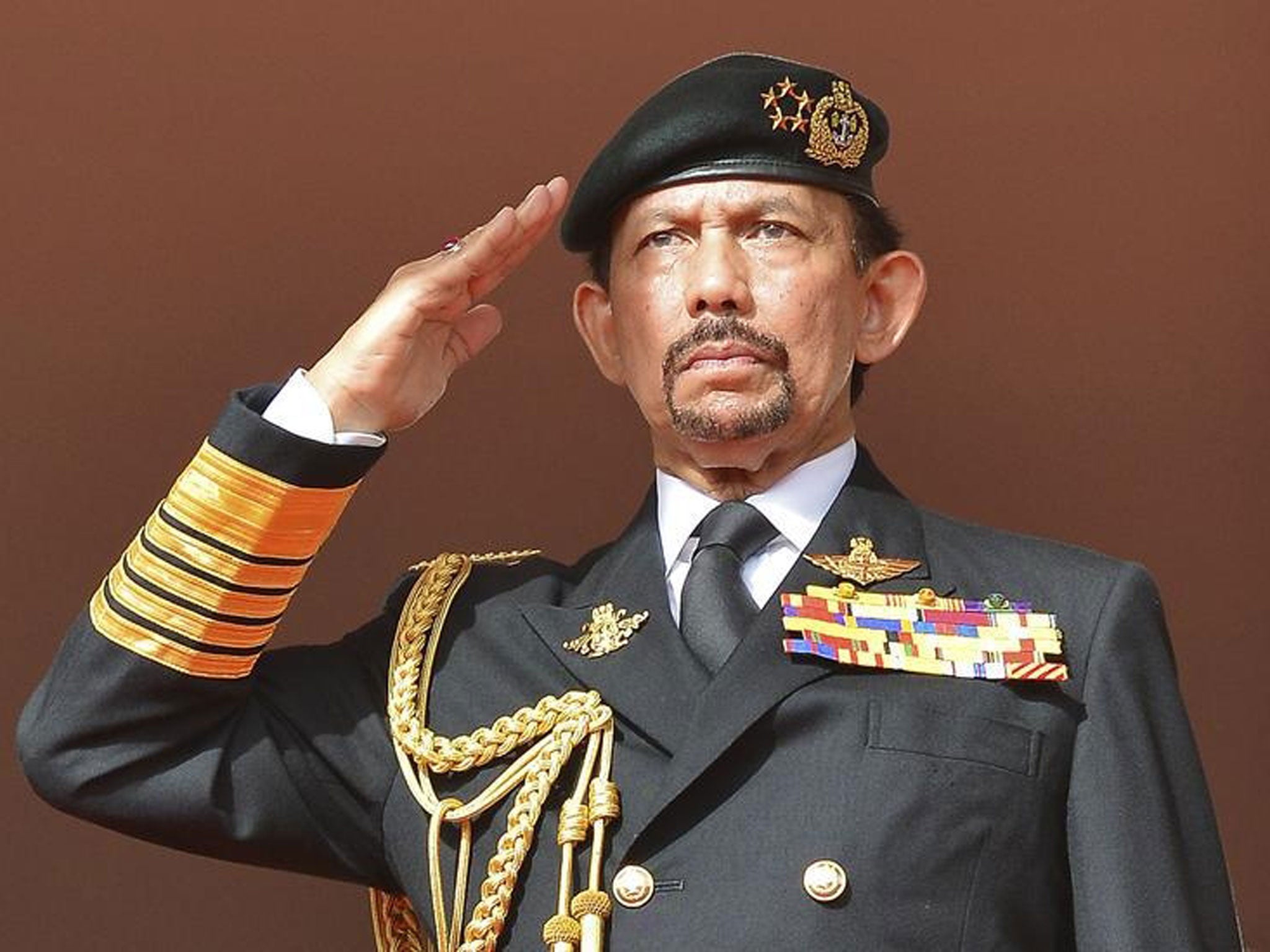Want freedom of speech? There's an app for that
Developed by a team from Brunei, Chrends allows its users to defy authoritarian governments without a trace


Earlier this year, the developers of a phone app called Chrends received $100,000 (£60,000) in seed money from ChinaRock Capital Management, located in San Francisco.
So far, Chrends has just 2,000 subscribers. But the team behind what they describe as the first, fully anonymous chat application hope that within a year that figure will have reached hundreds of thousands. “It can be downloaded by anyone in the world,” the company’s 32-year-old CEO Keeran Janin said this week.
Mr Janin and his team come from Brunei, a south-east Asian country ruled by an absolute monarch who earlier this year introduced Shariah law. Under the laws phased in by Sultan Hassanal Bolkiah, people convicted of various crimes could, in theory, face flogging, the dismemberment of limbs and even stoning to death.
The 68-year-old sultan, said to be worth £24bn and who lives in a 1,788-room palace, also warned that critics of his plans – especially those who had taken to social media to question the move – should watch out. He accused such critics of trying to foment “internal turmoil”.
Yet the developers of Chrends, perhaps cautious of sparking controversy, say they have not developed the app in response to Brunei’s limited freedom of speech.
The project has been in development since last year, they say, a full 12 months before Shariah was introduced. And the government even provided a small start-up grant. “It’s a coincidence,” said Mr Janin, speaking from the capital, Bandar Seri Begawan. “But it is interesting timing.”
Either way, those who sign up for Chrends have the ability to discuss all manner of topics, including many that struggle to get a voice in Brunei’s small, controlled media. Reporters Without Borders listed the former British colony at 117 out of 180 in its World Press Freedom Index this year.
These topics include sexuality, politics and indeed the introduction of Shariah law. Other topics have included the hunt for the lost Malaysia Airlines jet Flight MH370.
The four-strong team behind Chrends say the app, which is currently only available for use on iPhones, allows users to be entirely anonymous. Subscribers are not required to provide an email, phone number or even their real name.
Having downloaded the app, they simply select an identity and start chatting. A series of “bouncer nodes” and encrypted links ensure that no information, including a person’s IP address, is stored.
Mr Janin said the benefit of anonymous discussions was that people were judged on what they said, rather than their identity. There is no private messaging option. “Nobody is a celebrity. Everyone is equal in this platform.”
I logged onto Chrends using the avatar BritJournalist and entered a chat room about Shariah law, where a discussion was taking place about whether such rules would apply to Brunei’s powerful elite. I asked about the benefits of Chrends, particularly in a place such as Brunei. A user named Payungas said the application provided a freedom to say what people wanted to without being judged. “In Brunei You never really get to hear what people think,” added Payungas. “Chrends gives them the forum to speak their mind on topics that are usually shunned or [they] could actually get in trouble for. It gives people a truer form of freedom of speech. There is no such things as free media here either.”
Brunei secured independence in 1984 but has maintained close financial and defence links with Britain. A 1,000-strong regiment of the British Army, the Royal Gurkha Rifles, has been located there since the late 1950s, and in 1962 it stepped in to quell a rebellion against the Sultan’s father. Royal Dutch Shell, an Anglo-Dutch multinational, runs a major operation as a joint venture with the Brunei government
Earlier this year, the British government said it had raised its concerns about the introduction of Shariah law, but took no other measures to distance itself from the Sultan, who pays for the British Army regiment. That too, might be worthy of discussion in an anonymous chat room.
Some commentators, including the TechinAsia website, have pointed out the challenges of trying to monetise an app which does not require people to provide personal details. But Mr Janin is confident he can work around this. “We believe we can build a valuable network. There could be additional products and services that we sell.”
Join our commenting forum
Join thought-provoking conversations, follow other Independent readers and see their replies
Comments
Bookmark popover
Removed from bookmarks